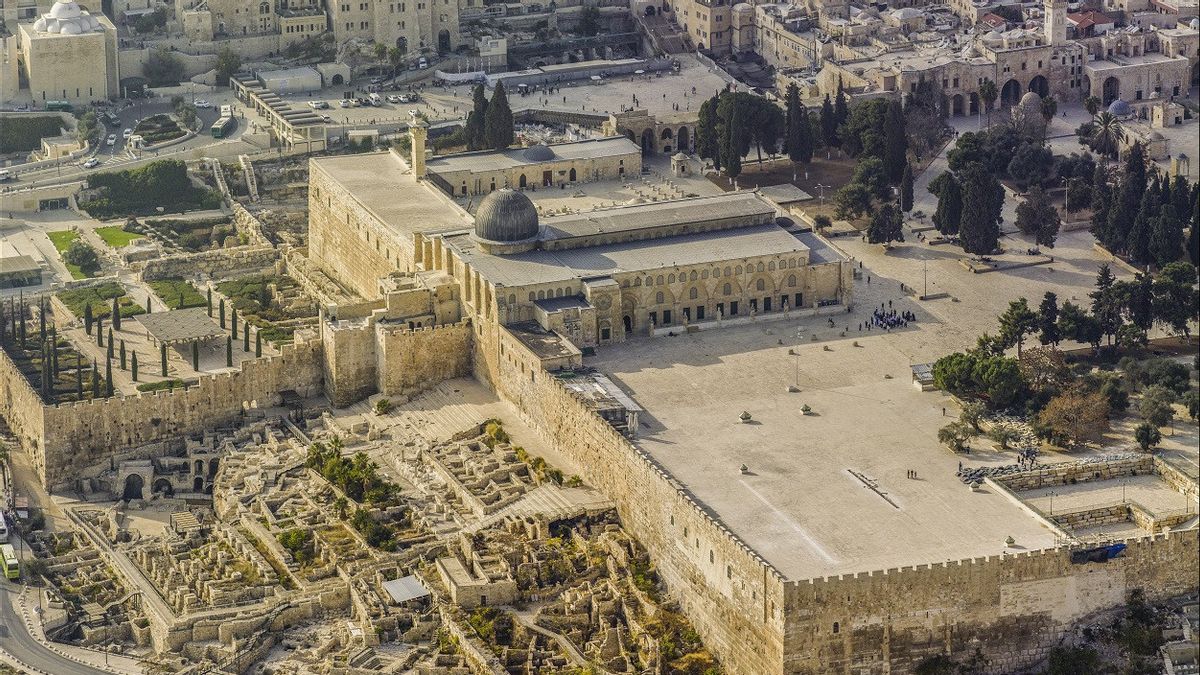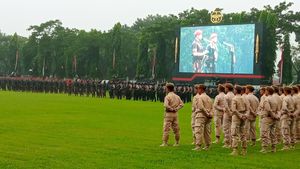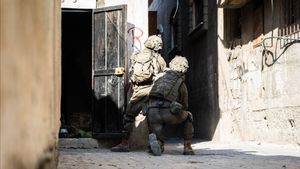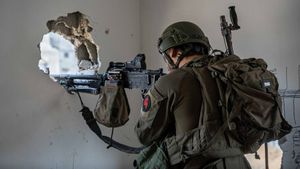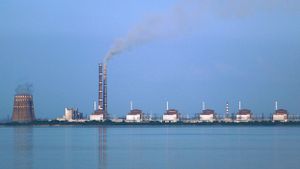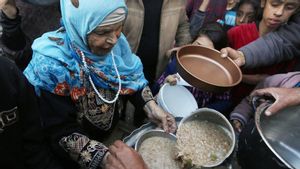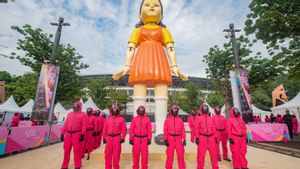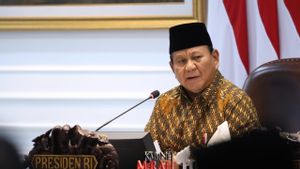JAKARTA - The Israeli Defense Forces (IDF) military liaison with Palestine on Tuesday announced that only small children and older adults of Palestinian citizens in the West Bank will be allowed to enter the Al-Aqsa Mosque Complex and perform Friday prayers in the first week of the month. Ramadan this week.
This year's Ramadan comes amid tensions sparked by the ongoing war against Hamas in the Gaza Strip, sparked by the Hamas militant group's attack on Israel's southern territory on October 7 which killed 1,200 residents. This was responded to by Israel's military campaign in Gaza which has killed more than 31,000 Palestinians.
The Hamas group has called on Palestinians to come to the Al-Aqsa Mosque, a frequent flashpoint of Israeli-Palestinian violence, to confront Israel over the war in Gaza.
As Ramadan began on Sunday evening, COGAT, the Israeli defense agency responsible for civil affairs in the West Bank, had not announced restrictions on prayers at Al-Aqsa.
Regulations announced on Monday will limit access of Palestinians in the West Bank to Friday Prayer complexes to men over 55, women over 50, and children under 10, COGAT chairman Ghassan Elian said in a post in Arabic on Facebook, quoted from The Times of Israel, March 13.
Congregations will require valid permission from COGAT, subject to security approvals, and there may be changes based on new assessments of the situation and other developments.
COGAT did not say whether Palestinians in the West Bank could visit Jerusalem between Sunday and Thursday during Ramadan.
In contrast to previous years, due to the war, Palestinian residents in Gaza are not allowed to pray at the Al-Aqsa Mosque.
Palestinians from the West Bank cannot visit Jerusalem due to restrictions the government imposed immediately after the Hamas attack on October 7 that started the ongoing war.
During last year's Ramadan, there was no age limit for women from the region entering Jerusalem.
The Temple Mount is the holiest site in Judaism, where two biblical Temples once stood, and the Al-Aqsa Mosque is the third holiest site in Islam, making the site a flashpoint of Israeli-Arab conflict.
Hundreds of thousands of Muslims flock to the place to pray every month of Ramadan. Although Israel has imposed restrictions on Palestinian access at a time of heightened security tensions, it has refrained from enforcing the rules.
SEE ALSO:
Police officers clashed with several worshipers at the entrance to the Temple Mount site on the first night of Ramadan on Sunday, but prayers on Monday took place peacefully.
Police were also accused of denying entry to a number of Israeli Arab citizens to the site, in violation of a promise made by PM Netanyahu to allow free access for Muslim citizens.
Last week, PM Netanyahu promised that the number of worshipers allowed to worship on the Temple Mount in the first week of Ramadan would be the same as in previous years and that no restrictions would be imposed on Israel's Arab citizens, overruling the reported wishes of Israel's National Security Minister who oversees the police as well as right-wing political figure Itamar Ben-Gvir.
The English, Chinese, Japanese, Arabic, and French versions are automatically generated by the AI. So there may still be inaccuracies in translating, please always see Indonesian as our main language. (system supported by DigitalSiber.id)
